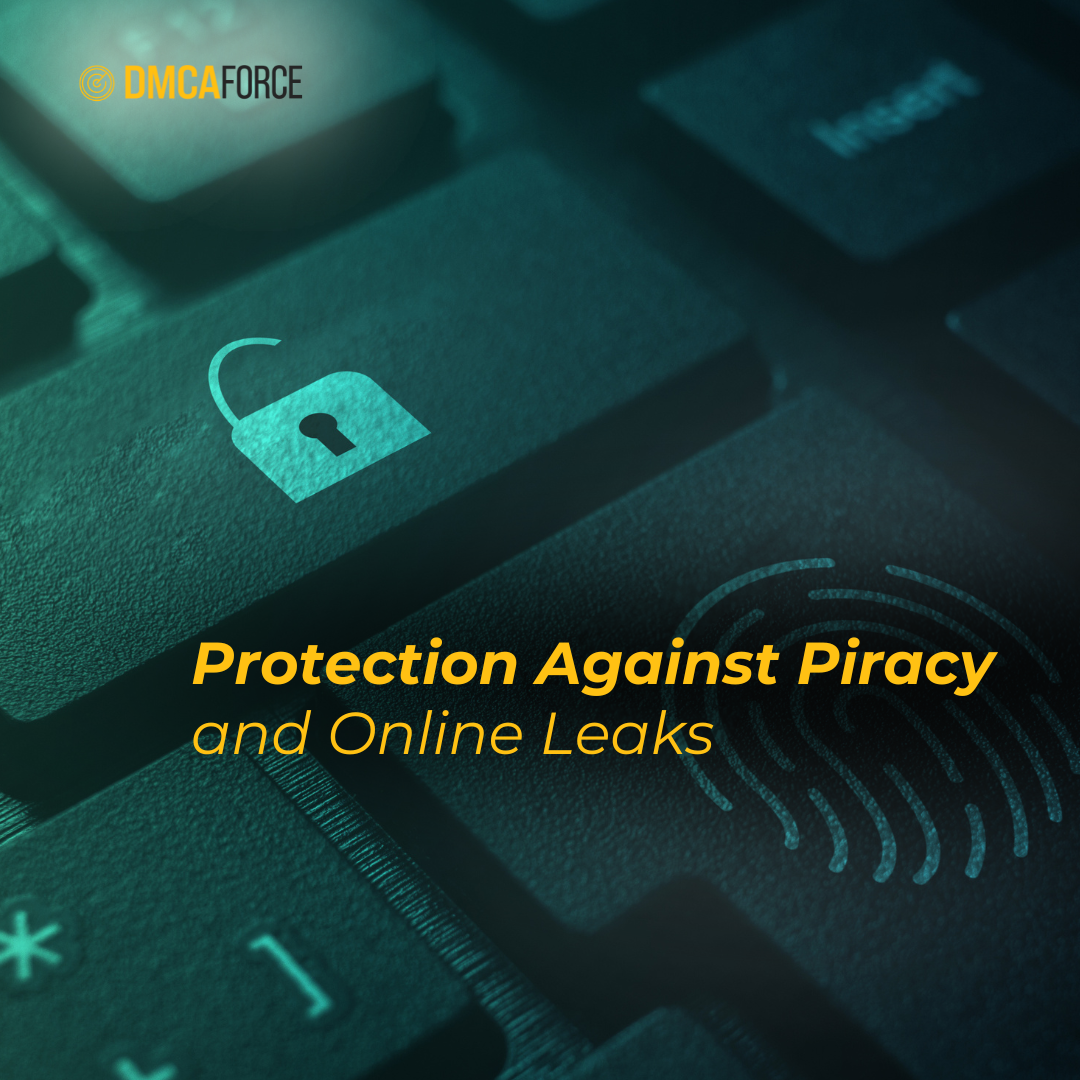News

How a DMCA Takedown Service Protects Your Digital Assets
The Digital Millennium Copyright Act (DMCA) is a law that protects creators of digital content from copyright infringement. It was passed in 1998 and has been a crucial tool for protecting intellectual property online. In order to defend your copyrights, it is necessary to understand how a DMCA takedown service protects your digital assets.
The DMCA provides a safe harbor for online service providers, such as social media platforms, websites, and search engines. This means that these providers are not liable for copyright infringement if they follow certain procedures to remove infringing content from their platforms.
Learn How a DMCA Takedown Service Protects Your Digital Assets
Here’s how it works: when a copyright holder discovers that their work is being used without permission on a website or platform, they can send a takedown notice to the provider. The notice must include specific information, such as the copyrighted work, the infringing material, and the location of the infringing material.
Once the provider receives the notice, they must remove or disable access to the infringing material. They must also notify the person who posted the material that it has been removed. If the person who posted the material believes it was removed in error, they can send a counter-notice to the provider.
The DMCA also provides penalties for those who misrepresent their claims of copyright infringement. This helps to prevent abuse of the system and ensures that only legitimate claims are made.
The DMCA has been instrumental in protecting creators’ rights online. It has allowed them to take control of their work and ensure that it is not used without permission. It has also helped to reduce piracy and promote legal use of digital content.
What does a DMCA takedown do?
A DMCA takedown is a legal notice sent to an online service provider, such as a website or social media platform, requesting that they remove certain content from their site because it infringes on the sender’s copyright. When a DMCA takedown notice is received, the service provider must take action to remove or disable access to the infringing material.
Here’s what happens when a DMCA takedown is issued:
The service provider receives the notice and reviews it to ensure it meets the legal requirements. If everything checks out, they will remove the infringing content from their platform. This means that the content will no longer be visible or accessible to users.
The person who posted the infringing material is notified that their content has been removed and why. They are also given information on how to file a counter-notice if they believe the removal was in error.
The removed content is not deleted permanently, but rather stored for a certain period of time in case there is a dispute over its removal. This allows the parties involved to resolve any issues before the content is restored or deleted forever.
A DMCA takedown does not automatically mean that legal action will be taken against the person who posted the infringing material. However, if they continue to post copyrighted material without permission, they may face legal consequences.
How does the DMCA notice and takedown system impact the way content is shared and consumed online?
The DMCA notice and takedown system has a significant impact on the way content is shared and consumed online. On one hand, it helps to protect the rights of copyright holders by allowing them to request the removal of infringing material from online platforms. This ensures that creators can control how their work is used and distributed online.
On the other hand, the DMCA system can also have a chilling effect on free speech and creativity. The threat of receiving a DMCA takedown notice can intimidate individuals and organizations into removing content that may be legally permissible, but could be perceived as infringing. This can lead to over-removal of content, including material that is protected by fair use or other legal exceptions.
The DMCA system can be abused by copyright holders who misuse the process to silence critics or competitors. This can lead to censorship and stifle online discourse. Additionally, the system can be exploited by automated bots that send false or frivolous takedown notices, which can result in legitimate content being removed from online platforms.
The DMCA system also places a significant burden on online service providers, who must devote resources to reviewing and responding to takedown notices. This can lead to increased costs and complexity for these providers, which may be passed on to users in the form of higher fees or reduced services.
How much does a DMCA takedown cost?
The cost of a DMCA takedown can vary widely depending on several factors. Here are some of the costs associated with the process:
Filing a DMCA notice: The cost of filing a DMCA notice is typically minimal, as it can be done by the copyright holder themselves or their legal representative. However, if you hire a lawyer to draft and file the notice, their fees can range from 500 to 2,000 or more, depending on the complexity of the case and the lawyer’s rates.
Responding to a DMCA counter-notice: If the person who posted the allegedly infringing material files a counter-notice, the copyright holder may need to respond in court. This can lead to significant legal fees, potentially ranging from 5,000 to 50,000 or more.
Legal fees for litigation: If the case goes to court, legal fees can skyrocket. The cost of litigating a copyright infringement case can range from 50,000 to 500,000 or more, depending on the complexity of the case and the number of lawyers involved.
Costs for online service providers: Online service providers (OSPs) also incur costs when processing DMCA notices. They must dedicate resources to reviewing notices, removing infringing content, and responding to counter-notices. These costs can be significant, especially for large OSPs that receive thousands of notices daily.
Costs for false or frivolous takedowns: In some cases, copyright holders may file false or frivolous takedown notices. This can result in legal fees for both parties involved. Additionally, OSPs may need to spend resources investigating and responding to these notices.
In summary, while filing a DMCA notice itself is relatively inexpensive, the overall cost of pursuing a copyright infringement claim through litigation can be substantial. It’s essential for copyright holders and OSPs alike to carefully consider their actions and ensure that they are complying with applicable laws and regulations.
How long does a DMCA takedown take?
The time it takes for a DMCA takedown to be processed can vary depending on several factors, including the online service provider’s (OSP) policies and procedures, the complexity of the case, and the response of the person who posted the allegedly infringing material. Here’s a general outline of the typical timeline:
Initial Takedown: 1-3 business days: After receiving a DMCA notice, the OSP will typically review it to ensure it meets the legal requirements. If everything checks out, they will remove or disable access to the infringing material within 1-3 business days.
Notification to User: 1-3 business days: The OSP will notify the person who posted the allegedly infringing material that their content has been removed and provide them with information on how to file a counter-notice.
Counter-Notice: 10-14 business days: The person who posted the material has 10-14 business days to file a counter-notice claiming that their use of the material is legitimate. If they do, they must provide contact information and consent to jurisdiction.
Reinstatement or Litigation: 10-30 business days: If a counter-notice is filed, the OSP will reinstate the removed content within 10-14 business days unless the copyright holder files a lawsuit against the user. If litigation ensues, it can take months or even years to resolve.
Repeat Infringer Policy: Ongoing: OSPs may have repeat infringer policies in place, which can lead to account termination or other penalties for users who repeatedly post infringing material.
Keep in mind that these timeframes are approximate and may vary depending on individual circumstances. The DMCA process is designed to balance copyright protection with free speech concerns, but it can be complex and time-consuming.
Protect Your Digital Assets today with DMCA Force’s Takedown Services.
How to Protect Your OnlyFans Content from Online Leaks and Piracy
November 15, 2024

Protect Your Content on Telegram: Using DMCA Claims to Combat Piracy
November 13, 2024

Unlock Your Revenue Potential at the AW Summit 2024 in Bucharest!
September 10, 2024
Got questions about protecting your digital assets from copyright infringement?


